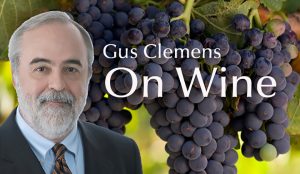What does the term “organic” mean in wine making?

Organic viticulture is an increasingly popular practice based on the proposition that healthy vines come from healthy soil, healthy vines produce better grapes, better grapes make better wine. The organic farmer sees the entire vineyard as a living, inter-connected thing.
Organic farming is pro-active. Farmers plant cover crops between vines to provide habitat for beneficial insects and act as a fertilizer to return nitrogen to the soil. Both solid and liquid compost is used, often by-products of wine making such as must left after grape pressing.
Ecological approaches replace chemical responses to disease and infestation. Instead of attacking a particular problem, farmers identify natural predators and diseases and encourage their natural enemies to live in the vineyards. Pheromones are used to create sexual confusion and reduce particular pest populations. Sheep, goats, llamas, and even ducks and geese roam the vineyard to crop weeds, eat bugs, turn and fertilize soil.
The organic farmer’s goal is to limit damage, not stop it. A chemical might eliminate a particular problem, but collateral damage to beneficial components in the ecosystem is deemed not worth the price.
When no chemical pesticides, herbicides, or fertilizers are used, the vineyard can be certified as organic. Almost 400 organizations worldwide now issue such certifications.
Many farmers employ organic practices but decline certification because they want options in case a particular chemical is needed to prevent a crop disaster, but that is the last resort.
Organic grapes do not necessarily mean organic wines. Organic wines have no artificial additives, principally sulfur. Pure organic wines, however, are unstable, do not handle shipping well, and have short shelf lives. Many vintners are as organic a possible, but not purists.
Tasting notes:
• Ferraton Père & Fils Côtes du Rhône Samorëns Blanc 2016: Fantastic value, clean, fresh, organic/biodynamic farming. $11-13 Link to review
• Ponzi Vineyards Pinot Gris Willamette Valley 2015: Light, fresh, clean; LIVE certified vineyards. $15-17 Link to review
• Frei Brothers Sonoma Reserve Dry Creek Valley Zinfandel 2014: Juicy, jammy pleaser; each vineyard acre is matched with a second acre set aside for conservation. $16-20 Link to review
• Mettler Family Vineyards Petite Sirah Estate Grown 2013: Delicious easy drinker; certified organic vineyards. $22-25 Link to review
Last round: I never drink wine alone. I know somewhere on Earth someone else is drinking wine at the same time I am.
